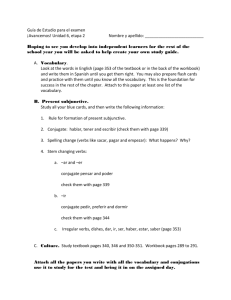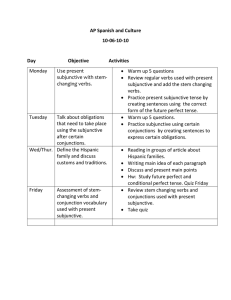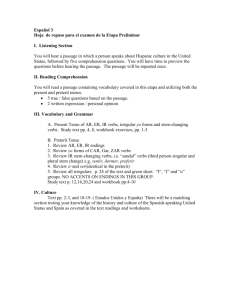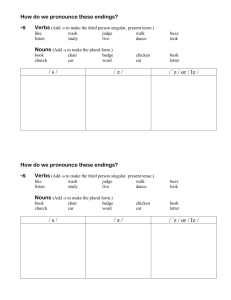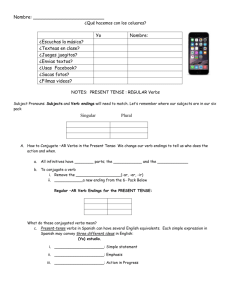Test Taking Strategies for the Romance Languages
advertisement
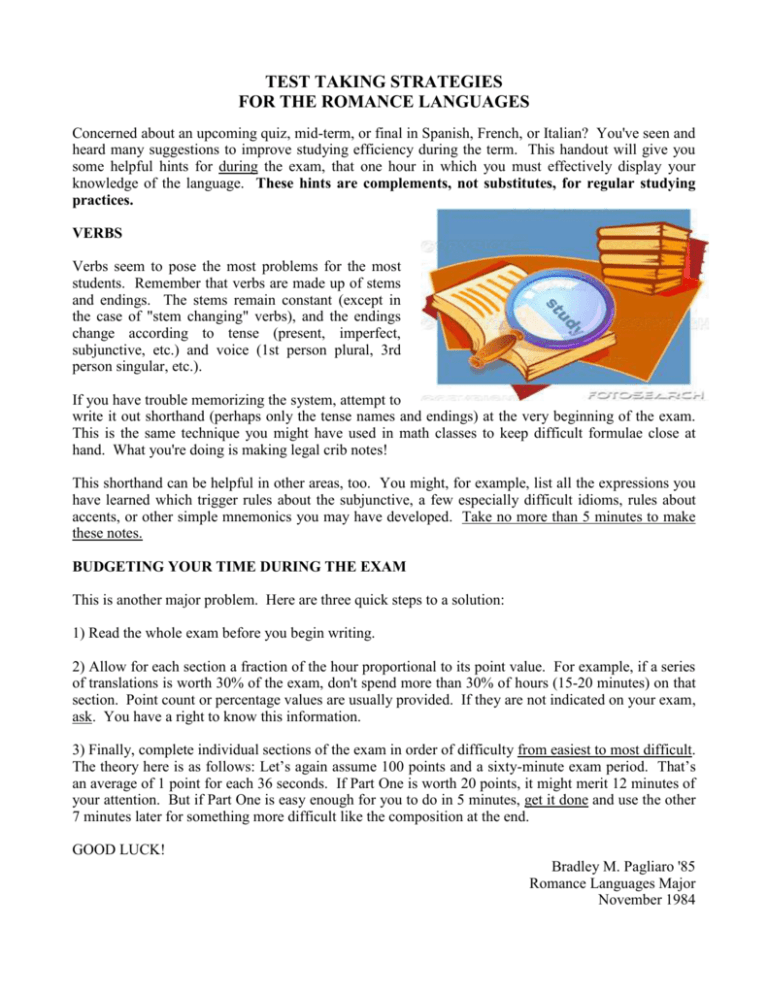
TEST TAKING STRATEGIES FOR THE ROMANCE LANGUAGES Concerned about an upcoming quiz, mid-term, or final in Spanish, French, or Italian? You've seen and heard many suggestions to improve studying efficiency during the term. This handout will give you some helpful hints for during the exam, that one hour in which you must effectively display your knowledge of the language. These hints are complements, not substitutes, for regular studying practices. VERBS Verbs seem to pose the most problems for the most students. Remember that verbs are made up of stems and endings. The stems remain constant (except in the case of "stem changing" verbs), and the endings change according to tense (present, imperfect, subjunctive, etc.) and voice (1st person plural, 3rd person singular, etc.). If you have trouble memorizing the system, attempt to write it out shorthand (perhaps only the tense names and endings) at the very beginning of the exam. This is the same technique you might have used in math classes to keep difficult formulae close at hand. What you're doing is making legal crib notes! This shorthand can be helpful in other areas, too. You might, for example, list all the expressions you have learned which trigger rules about the subjunctive, a few especially difficult idioms, rules about accents, or other simple mnemonics you may have developed. Take no more than 5 minutes to make these notes. BUDGETING YOUR TIME DURING THE EXAM This is another major problem. Here are three quick steps to a solution: 1) Read the whole exam before you begin writing. 2) Allow for each section a fraction of the hour proportional to its point value. For example, if a series of translations is worth 30% of the exam, don't spend more than 30% of hours (15-20 minutes) on that section. Point count or percentage values are usually provided. If they are not indicated on your exam, ask. You have a right to know this information. 3) Finally, complete individual sections of the exam in order of difficulty from easiest to most difficult. The theory here is as follows: Let’s again assume 100 points and a sixty-minute exam period. That’s an average of 1 point for each 36 seconds. If Part One is worth 20 points, it might merit 12 minutes of your attention. But if Part One is easy enough for you to do in 5 minutes, get it done and use the other 7 minutes later for something more difficult like the composition at the end. GOOD LUCK! Bradley M. Pagliaro '85 Romance Languages Major November 1984



